- Home
- Joseph Conrad
The Secret Sharer and Other Stories Page 3
The Secret Sharer and Other Stories Read online
Page 3
“The night was fine. In the morning a homeward-bound ship passed us hull down—the first we had seen for months; but we were nearing the land at last, Java Head being about 190 miles off, and nearly due north.
“Next day it was my watch on deck from eight to twelve. At breakfast the captain observed, ‘It’s wonderful how that smell hangs about the cabin.’ About ten, the mate being on the poop, I stepped down on the main deck for a moment. The carpenter’s bench stood abaft the mainmast: I leaned against it sucking at my pipe, and the carpenter, a young chap, came to talk to me. He remarked, ‘I think we have done very well, haven’t we?’ and then I perceived with annoyance the fool was trying to tilt the bench. I said curtly, ‘Don’t, Chips,’ and immediately became aware of a queer sensation, of an absurd delusion—I seemed somehow to be in the air. I heard all round me like a pent-up breath released—as if a thousand giants simultaneously had said Phoo!—and felt a dull concussion which made my ribs ache suddenly. No doubt about it—I was in the air, and my body was describing a short parabola. But short as it was, I had the time to think several thoughts in, as far as I can remember, the following order: ‘This can’t be the carpenter—What is it?—Some accident—Submarine volcano?—Coals, gas!—By Jove! We are being blown up—Everybody’s dead—I am falling into the afterhatch—I see fire in it.’
“The coaldust suspended in the air of the hold had glowed dull-red at the moment of the explosion. In the twinkling of an eye, in an infinitesimal fraction of a second since the first tilt of the bench, I was sprawling full length on the cargo. I picked myself up and scrambled out. It was quick like a rebound. The deck was a wilderness of smashed timber, lying crosswise like trees in a wood after a hurricane; an immense curtain of solid rags waved gently before me—it was the mainsail blown to strips. I thought: the masts will be toppling over directly; and to get out of the way bolted on all fours towards the poop ladder. The first person I saw was Mahon, with eyes like saucers, his mouth open, and the long white hair standing straight on end round his head like a silver halo. He was just about to go down when the sight of the main deck stirring, heaving up, and changing into splinters before his eyes, petrified him on the top step. I stared at him in unbelief, and he stared at me with a queer kind of shocked curiosity. I did not know that I had no hair, no eyebrows, no eyelashes, that my young mustache was burnt off, that my face was black, one cheek laid open, my nose cut, and my chin bleeding. I had lost my cap, one of my slippers, and my shirt was torn to rags. Of all this I was not aware. I was amazed to see the ship still afloat, the poop deck whole—and, most of all, to see anybody alive. Also the peace of the sky and the serenity of the sea were distinctly surprising. I suppose I expected to see them convulsed with horror. . . . Pass the bottle.
“There was a voice hailing the ship from somewhere—in the air, in the sky—I couldn’t tell. Presently I saw the captain—and he was mad. He asked me eagerly, ‘Where’s the cabin table?’ and to hear such a question was a frightful shock. I had just been blown up, you understand, and vibrated with that experience—I wasn’t quite sure whether I was alive. Mahon began to stamp with both feet and yelled at him, ‘Good God! don’t you see the deck’s blown out of her?’ I found my voice, and stammered out as if conscious of some gross neglect of duty, ‘I don’t know where the cabin table is.’ It was like an absurd dream.
“Do you know what he wanted next? Well, he wanted to trim the yards. Very placidly, and as if lost in thought, he insisted on having the foreyard squared. ‘I don’t know if there’s anybody alive,’ said Mahon, almost tearfully. ‘Surely,’ he said, gently, ‘there will be enough left to square the foreyard.’
“The old chap, it seems, was in his own berth winding up the chronometers, when the shock sent him spinning. Immediately it occurred to him—as he said afterwards—that the ship had struck something, and ran out into the cabin. There, he saw, the cabin table had vanished somewhere. The deck being blown up, it had fallen down into the lazarette of course. Where we had our breakfast that morning he saw only a great hole in the floor. This appeared to him so awfully mysterious, and impressed him so immensely, that what he saw and heard after he got on deck were mere trifles in comparison. And, mark, he noticed directly the wheel deserted and his bark off her course—and his only thought was to get that miserable, stripped, undecked, smoldering shell of a ship back again with her head pointing at her port of destination. Bangkok! That’s what he was after. I tell you this quiet, bowed, bandy-legged, almost deformed little man was immense in the singleness of his idea and in his placid ignorance of our agitation. He motioned us forward with a commanding gesture, and went to take the wheel himself.
“Yes; that was the first thing we did—trim the yards of that wreck! No one was killed, or even disabled, but everyone was more or less hurt. You should have seen them! Some were in rags, with black faces, like coal heavers, like sweeps, and had bullet heads that seemed closely cropped, but were in fact singed to the skin. Others, of the watch below, awakened by being shot out from their collapsing bunks, shivered incessantly, and kept on groaning even as we went about our work. But they all worked. That crew of Liverpool hard cases had in them the right stuff. It’s my experience they always have. It is the sea that gives it—the vastness, the loneliness surrounding their dark stolid souls. Ah! Well! We stumbled, we crept, we fell, we barked our shins on the wreckage, we hauled. The masts stood, but we did not know how much they might be charred down below. It was nearly calm, but a long swell ran from the west and made her roll. They might go at any moment. We looked at them with apprehension. One could not foresee which way they would fall.
“Then we retreated aft and looked about us. The deck was a tangle of planks on edge, of planks on end, of splinters, of ruined woodwork. The masts rose from that chaos like big trees above a matted undergrowth. The interstices of that mass of wreckage were full of something whitish, sluggish, stirring—of something that was like a greasy fog. The smoke of the invisible fire was coming up again, was trailing, like a poisonous thick mist in some valley choked with dead wood. Already lazy wisps were beginning to curl upwards amongst the mass of splinters. Here and there a piece of timber, stuck upright, resembled a post. Half of a fife rail had been shot through the foresail, and the sky made a patch of glorious blue in the ignobly soiled canvas. A portion of several boards holding together had fallen across the rail, and one end protruded overboard, like a gangway leading upon nothing, like a gangway leading over the deep sea, leading to death—as if inviting us to walk the plank at once and be done with our ridiculous troubles. And still the air, the sky—a ghost, something invisible was hailing the ship.
“Someone had the sense to look over, and there was the helmsman, who had impulsively jumped overboard, anxious to come back. He yelled and swam lustily like a merman, keeping up with the ship. We threw him a rope, and presently he stood amongst us streaming with water and very crestfallen. The captain had surrendered the wheel, and apart, elbow on rail and chin in hand, gazed at the sea wistfully. We asked ourselves, What next? I thought, Now, this is something like. This is great. I wonder what will happen. O youth!
“Suddenly Mahon sighted a steamer far astern. Captain Beard said, ‘We may do something with her yet.’ We hoisted two flags, which said in the international language of the sea, ‘On fire. Want immediate assistance.’ The steamer grew bigger rapidly, and by and by spoke with two flags on her foremast, ‘I am coming to your assistance.’
“In half an hour she was abreast, to windward, within hail, and rolling slightly, with her engines stopped. We lost our composure, and yelled all together with excitement, ‘We’ve been blown up.’ A man in a white helmet, on the bridge, cried, ‘Yes! All right! all right!’ and he nodded his head, and smiled, and made soothing motions with his hand as though at a lot of frightened children. One of the boats dropped in the water, and walked towards us upon the sea with her long oars. Four Calashes pulled a swinging stroke. This was my first sight of Malay seamen. I’ve known them
since, but what struck me then was their unconcern: they came alongside, and even the bowman standing up and holding to our main chains with the boathook did not deign to lift his head for a glance. I thought people who had been blown up deserved more attention.
“A little man, dry like a chip and agile like a monkey, clambered up. It was the mate of the steamer. He gave one look, and cried, ‘O boys—you had better quit!’
“We were silent. He talked apart with the captain for a time—seemed to argue with him. Then they went away together to the steamer.
“When our skipper came back we learned that the steamer was the Somerville, Captain Nash, from West Australia to Singapore via Batavia with mails, and that the agreement was she should tow us to Anjer or Batavia, if possible, where we could extinguish the fire by scuttling, and then proceed on our voyage—to Bangkok! The old man seemed excited. ‘We will do it yet,’ he said to Mahon, fiercely. He shook his fist at the sky. Nobody else said a word.
“At noon the steamer began to tow. She went ahead slim and high, and what was left of the Judea followed at the end of seventy fathom of towrope—followed her swiftly like a cloud of smoke with mastheads protruding above. We went aloft to furl the sails. We coughed on the yards, and were careful about the bunts. Do you see the lot of us there, putting a neat furl on the sails of that ship doomed to arrive nowhere? There was not a man who didn’t think that at any moment the masts would topple over. From aloft we could not see the ship for smoke, and they worked carefully, passing the gaskets with even turns. ‘Harbor furl—aloft there!’ cried Mahon from below.
“You understand this? I don’t think one of those chaps expected to get down in the usual way. When we did I heard them saying to each other, ‘Well, I thought we would come down overboard, in a lump—sticks and all—blame me if I didn’t.’ ‘That’s what I was thinking to myself,’ would answer wearily another battered and bandaged scarecrow And, mind, these were men without the drilled-in habit of obedience. To an onlooker they would be a lot of profane scallywags without a redeeming point. What made them do it—what made them obey me when I, thinking consciously how fine it was, made them drop the bunt of the foresail twice to try and do it better? What? They had no professional reputation—no examples, no praise. It wasn’t a sense of duty; they all knew well enough how to shirk, and laze, and dodge—when they had a mind to it—and mostly they had. Was it the two pounds ten a month that sent them there? They didn’t think their pay half good enough. No; it was something in them, something inborn and subtle and everlasting. I don’t say positively that the crew of a French or German merchantman wouldn’t have done it, but I doubt whether it would have been done in the same way. There was a completeness in it, something solid like a principle, and masterful like an instinct—a disclosure of something secret—of that hidden something, that gift of good or evil that makes racial difference, that shapes the fate of nations.
“It was that night at ten that, for the first time since we had been fighting it, we saw the fire. The speed of the towing had fanned the smoldering destruction. A blue gleam appeared forward, shining below the wreck of the deck. It wavered in patches, it seemed to stir and creep like the light of a glowworm. I saw it first, and told Mahon. ‘Then the game’s up,’ he said. ‘We had better stop this towing, or she will burst out suddenly fore and aft before we can clear out.’ We set up a yell; rang bells to attract their attention; they towed on. At last Mahon and I had to crawl forward and cut the rope with an axe. There was no time to cast off the lashings. Red tongues could be seen licking the wilderness of splinters under our feet as we made our way back to the poop.
“Of course they very soon found out in the steamer that the rope was gone. She gave a loud blast of her whistle, her lights were seen sweeping in a wide circle, she came up ranging close alongside, and stopped. We were all in a tight group on the poop looking at her. Every man had saved a little bundle or a bag. Suddenly a conical flame with a twisted top shot up forward and threw upon the black sea a circle of light, with the two vessels side by side and heaving gently in its center. Captain Beard had been sitting on the gratings still and mute for hours, but now he rose slowly and advanced in front of us, to the mizzen-shrouds. Captain Nash hailed: ‘Come along! Look sharp. I have mailbags on board. I will take you and your boats to Singapore.’
“ ‘Thank you! No!’ said our skipper. ‘We must see the last of the ship.’
“ ‘I can’t stand by any longer,’ shouted the other. ‘Mails—you know.’
“ ‘Ay! ay! We are all right.’
“ ‘Very well ! I’ll report you in Singapore. . . . Good-by!’
“He waved his hand. Our men dropped their bundles quietly. The steamer moved ahead, and passing out of the circle of light, vanished at once from our sight, dazzled by the fire which burned fiercely. And then I knew that I would see the East first as commander of a small boat. I thought it fine; and the fidelity to the old ship was fine. We should see the last of her. Oh, the glamor of youth! Oh, the fire of it, more dazzling than the flames of the burning ship, throwing a magic light on the wide earth, leaping audaciously to the sky, presently to be quenched by time, more cruel, more pitiless, more bitter than the sea—and like the flames of the burning ship surrounded by an impenetrable night.
“The old man warned us in his gentle and inflexible way that it was part of our duty to save for the underwriters as much as we could of the ship’s gear. Accordingly we went to work aft, while she blazed forward to give us plenty of light. We lugged out a lot of rubbish. What didn’t we save? An old barometer fixed with an absurd quantity of screws nearly cost me my life: a sudden rush of smoke came upon me, and I just got away in time. There were various stores, bolts of canvas, coils of rope; the poop looked like a marine bazaar, and the boats were lumbered to the gunwales. One would have thought the old man wanted to take as much as he could of his first command with him. He was very, very quiet, but off his balance evidently. Would you believe it? He wanted to take a length of old stream-cable and a kedge anchor with him in the longboat. We said, Ay, ay, sir,’ deferentially, and on the quiet let the things slip overboard. The heavy medicine chest went that way, two bags of green coffee, tins of paint—fancy, paint!—a whole lot of things. Then I was ordered with two hands into the boats to make a stowage and get them ready against the time it would be proper for us to leave the ship.
“We put everything straight, stepped the longboat’s mast for our skipper, who was to take charge of her, and I was not sorry to sit down for a moment. My face felt raw, every limb, ached as if broken, I was aware of all my ribs, and would have sworn to a twist in the backbone. The boats, fast astern, lay in a deep shadow, and all around I could see the circle of the sea lighted by the fire. A gigantic flame arose forward straight and clear. It flared fierce, with noises like the whirr of wings, with rumbles as of thunder. There were cracks, detonations, and from the cone of flame the sparks flew upwards, as man is born to trouble, to leaky ships, and to ships that burn.
“What bothered me was that the ship, lying broadside to the swell and to such wind as there was—a mere breath—the boats would not keep astern where they were safe, but persisted, in a pigheaded way boats have, in getting under the counter and then swinging alongside. They were knocking about dangerously and coming near the flame, while the ship rolled on them, and, of course, there was always the danger of the masts going over the side at any moment. I and my two boatkeepers kept them off as best we could, with oars and boathooks; but to be constantly at it became exasperating, since there was no reason why we should not leave at once. We could not see those on board, nor could we imagine what caused the delay. The boatkeepers were swearing feebly, and I had not only my share of the work but also had to keep at it two men who showed a constant inclination to lay themselves down and let things slide.
“At last I hailed, ‘On deck there,’ and someone looked over. ‘We’re ready here,’ I said. The head disappeared, and very soon popped up again. ‘The captain says
, All right, sir, and to keep the boats well clear of the ship.’
“Half an hour passed. Suddenly there was a frightful racket, rattle, clanking of chain, hiss of water, and millions of sparks flew up into the shivering column of smoke that stood leaning slightly above the ship. The catheads had burned away, and the two red-hot anchors had gone to the bottom, tearing out after them two hundred fathom of red-hot chain. The ship trembled, the mass of flame swayed as if ready to collapse, and the fore-topgallant mast fell. It darted down like an arrow of fire, shot under, and instantly leaping up within an oar’s length of the boats, floated quietly, very black on the luminous sea. I hailed the deck again. After some time a man in an unexpectedly cheerful but also muffled tone, as though he had been trying to speak with his mouth shut, informed me, ‘Coming directly, sir,’ and vanished. For a long time I heard nothing but the whirr and roar of the fire. There were also whistling sounds. The boats jumped, tugged at the painters, ran at each other playfully, knocked their sides together, or, do what we would, swung in a bunch against the ship’s side. I couldn’t stand it any longer, and swarming up a rope, clambered aboard over the stern.
“It was as bright as day. Coming up like this, the sheet of fire facing me was a terrifying sight, and the heat seemed hardly bearable at first. On a settee cushion dragged out of the cabin Captain Beard, his legs drawn up and one arm under his head, slept with the light playing on him. Do you know what the rest were busy about? They were sitting on deck right aft, round an open case, eating bread and cheese and drinking bottled stout.
“On the background of flames twisting in fierce tongues above their heads they seemed at home like salamanders, and looked like a band of desperate pirates. The fire sparkled in the whites of their eyes, gleamed on patches of white skin seen through the torn shirts. Each had the marks as of a battle about him—bandaged heads, tied-up arms, a strip of dirty rag round a knee—and each man had a bottle between his legs and a chunk of cheese in his hand. Mahon got up. With his handsome and disreputable head, his hooked profile, his long white beard, and with an uncorked bottle in his hand, he resembled one of those reckless sea robbers of old making merry amidst violence and disaster. ‘The last meal on board,’ he explained solemnly. ‘We had nothing to eat all day, and it was no use leaving all this.’ He flourished the bottle and indicated the sleeping skipper. ‘He said he couldn’t swallow anything, so I got him to lie down,’ he went on; and as I stared, ‘I don’t know whether you are aware, young fellow, the man had no sleep to speak of for days—and there will be dam’ little sleep in the boats.’ ‘There will be no boats by and by if you fool about much longer,’ I said, indignantly. I walked up to the skipper and shook him by the shoulder. At last he opened his eyes, but did not move. ‘Time to leave her, sir,’ I said quietly.

 Heart of Darkness
Heart of Darkness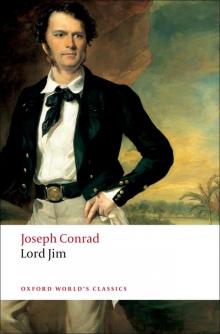 Lord Jim
Lord Jim The Nigger of the Narcissus (Echo Library)
The Nigger of the Narcissus (Echo Library) Victory (Dover Thrift Editions)
Victory (Dover Thrift Editions) Secret Agent
Secret Agent Nostromo
Nostromo Chance: A Tale in Two Parts
Chance: A Tale in Two Parts Youth
Youth Almayer's Folly
Almayer's Folly The Heart of Darkness and the Secret Sharer
The Heart of Darkness and the Secret Sharer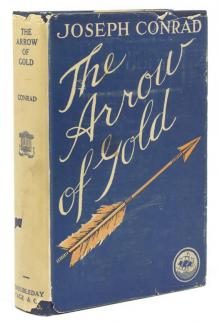 The Arrow of Gold: A Story Between Two Notes
The Arrow of Gold: A Story Between Two Notes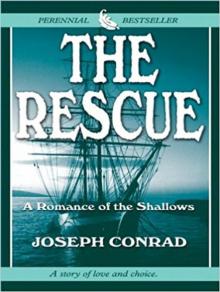 The Rescue: A Romance of the Shallows
The Rescue: A Romance of the Shallows The Point Of Honor: A Military Tale
The Point Of Honor: A Military Tale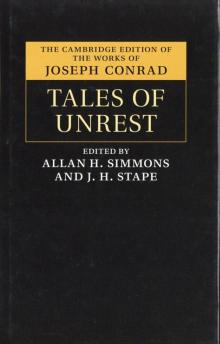 Tales of Unrest
Tales of Unrest Under Western Eyes
Under Western Eyes Gaspar Ruiz
Gaspar Ruiz A Set of Six
A Set of Six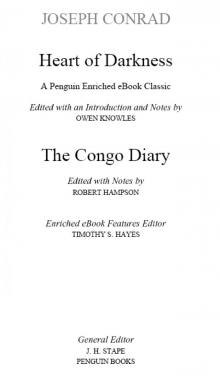 Heart of Darkness and the Congo Diary (Penguin Classics)
Heart of Darkness and the Congo Diary (Penguin Classics) Heart of Darkness and Selected Short Fiction
Heart of Darkness and Selected Short Fiction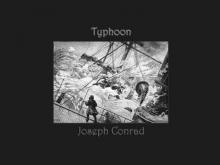 Typhoon
Typhoon Youth, a Narrative
Youth, a Narrative Tomorrow
Tomorrow The Arrow of Gold
The Arrow of Gold The Shadow Line: A Confession
The Shadow Line: A Confession The Rescue
The Rescue Victory (Echo Library)
Victory (Echo Library) The Brute
The Brute Romance
Romance A Personal Record
A Personal Record Lord Jim: A Tale
Lord Jim: A Tale Heart of Darkness and Selected Short Fiction (Barnes & Noble Classics Series)
Heart of Darkness and Selected Short Fiction (Barnes & Noble Classics Series) Within the Tides
Within the Tides The Secret Sharer and Other Stories
The Secret Sharer and Other Stories Falk
Falk Heart of Darkness and The Secret Sharer
Heart of Darkness and The Secret Sharer Chance
Chance An Anarchist
An Anarchist The Secret Agent: A Simple Tale
The Secret Agent: A Simple Tale The Secret Agent
The Secret Agent Complete Works of Joseph Conrad (Illustrated)
Complete Works of Joseph Conrad (Illustrated)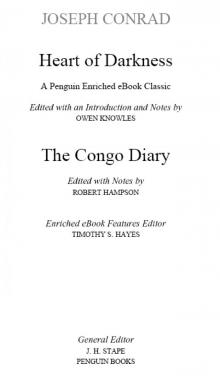 Heart of Darkness and the Congo Diary
Heart of Darkness and the Congo Diary Notes on Life & Letters
Notes on Life & Letters Typhoon (Single Story)
Typhoon (Single Story)